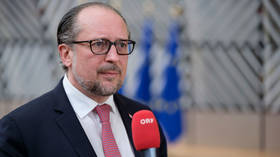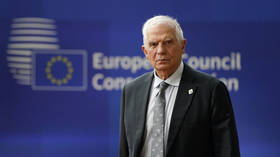EU member warns West not to ‘burn bridges’ with Russia

Austrian Foreign Minister Alexander Schallenberg has warned against “ghosting” Russia when it comes to peace efforts to resolve the Ukraine conflict, insisting that all channels of communication should be used.
The diplomat’s comments come after condemnation from EU officials over Hungarian Prime Minister Viktor Orban’s visit to Russia earlier this month as part of his Ukraine “peace mission.”
“One cannot burn all bridges… Ghosting doesn’t work in foreign policy. I’m a realist and I have to deal with the world as it is, and Russia is part of it,” Schallenberg told Austrian broadcaster ORF on Sunday.
Last month, Switzerland hosted a ‘Peace in Ukraine’ summit to which Russia was not invited. The event focused on Ukrainian leader Vladimir Zelensky’s ‘peace plan’ to end the conflict, which calls on Russia to withdraw from all territories that Kiev claims as its own. The plan has been dismissed by Moscow as being detached from reality.
Schallenberg added that there are “channels of communication” with Russia and insisted that they must be used.
Austria is an EU member but is not part of NATO. Like Hungary, Vienna announced last year that it would not send weapons to Ukraine, countering the trend among the EU. Schallenberg last week also ruled out sending Austrian military instructors to Ukraine.
In March, Austrian Chancellor Karl Nehammer spoke against the idea of using the profits from Russian assets frozen in the EU to provide weapons for Kiev.
In his interview on Sunday, Schallenberg also claimed Russia was not showing willingness to engage in “serious dialogue,” which he said makes it important to involve countries such as India, Brazil, and China in talks, “because they may have more influence on Moscow than others.”
During his controversial peace mission, Orban also visited China, which has long insisted on a diplomatic resolution to the Ukraine conflict. Beijing did not send a delegation to the conference in Switzerland in June, despite being invited.
Russia has repeatedly stated that it is open to dialogue on Ukraine. It has pointed out, however, that any talk of negotiations is pointless unless Zelensky rescinds a law banning Kiev from negotiating with the current leadership in Moscow.













